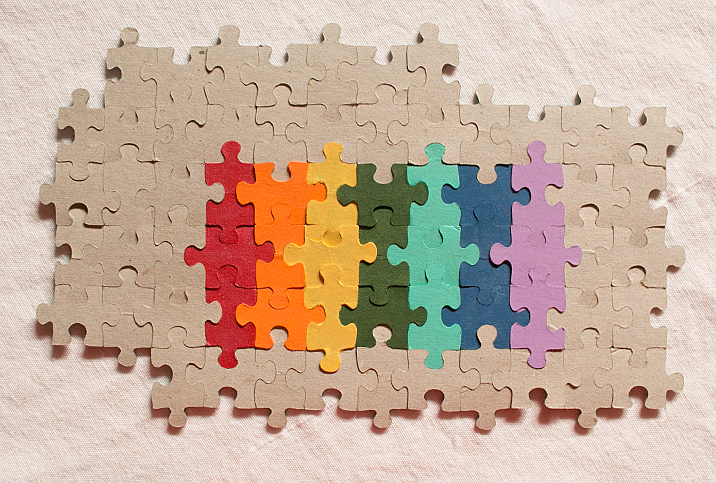An Ace up Your Sleeve: The Basics of Asexuality

From movies to music to advertising and beyond, sex is everywhere in our society. Since it feels like you can’t take two steps or view a few minutes of TV (or the internet) without encountering sexual imagery or messaging of some kind, it might seem reasonable to assume everyone experiences sexual attraction.
Actually, that isn’t the case.
Some people don’t experience sexual attraction, or at least not in the way others do, and that’s known as asexual orientation or asexuality (ace for short). Asexuality has increased in visibility over the past decade or so, and it is now considered part of the LGBTQIA+ umbrella. (It’s the “A.”) So let’s find out what this lesser-known sexuality is all about.
What isn’t asexuality?
Someone who identifies as asexual does not experience sexual attraction, so asexuality should not be confused with celibacy, abstinence, a “dry spell” or a change in libido. The absence of sex itself does not necessarily indicate that someone is asexual.
Asexuality is also not the same as being unable to have sex due to a physical limitation or medical condition. The key difference is people with a physical limitation or medical condition generally still experience sexual attraction, but they either don’t or are unable to act on that attraction.
The asexual spectrum & related terms
Allosexual individuals—those who experience sexual attraction—may identify with a sexual orientation on a spectrum of gay to straight. Asexuals may fall on an identity spectrum, as well. Over the years, the ace community has coined several terms to describe people along this spectrum.
For example, demisexuals only experience sexual attraction once they have formed a close emotional bond. Graysexuals are individuals who identify somewhere between asexual and allosexual, as in they experience sexual attraction rarely and at low levels.
Relationships, sex & asexuality
Some people may assume that because asexuals don’t experience sexual attraction, they don’t date. However, asexuals do experience romantic attraction and therefore seek out partners. In fact, several ace dating sites are available for individuals looking for nonsexual relationships.
Another false assumption about asexuals is that they never do anything sexual, but this depends on the individual. While some asexuals may be sex-repulsed and have a strong aversion to all sexual activity, others may be amenable to engaging in some types of sexual activity.
Many asexuals still experience arousal and partake in solo sex but have no interest in pairing with another person for sexual activities. Inversely, they may enjoy sex at their partner’s suggestion, but never seek out sexual gratification for themselves. Others could have an interest in sex purely to procreate.
Asexual-allosexual relationships exist and can take different forms. For example, an asexual person may agree to have sex with their allosexual partner with specific boundaries based on the frequency and the type of sex performed. Other couples may engage in ethical nonmonogamy, where the allosexual person fulfills their sexual needs with a different partner or partners.
The shape and form of a relationship really comes down to the partners involved.
Asexuality-related stigma
Like any sexual minority, asexuals can face stigma and discrimination. In a world where allosexuality is considered the norm by a wide margin, asexuality is often construed as a dysfunction, a mental illness or a choice (rather than orientation). Ace people may also be accused of being broken, selfish or even robotic.
In addition, asexuals face discrimination even within the LGBTQIA+ community. Well-known activist and relationship columnist Dan Savage opined in 2011 that ace individuals should not participate in Pride events and do not belong under the LGBTQIA+ umbrella, sparking controversy and debate among ace people and their allosexual peers.
Ultimately, such discrimination is harmful to people who identify as asexual. Not only does it cast them as social rejects, but if the stigmas are internalized, they can lead to low self-esteem or even self-hatred.
If you know someone who is asexual and you’re looking for ways to support and validate their experience, the Asexual Visibility and Education Network (AVEN) provides a huge number of resources for both asexuals and their allosexual allies.
Lessons from aces
Because they are not interested in sex, asexuals have pioneered other ways to show love and affection and to form close platonic relationships. For individuals who face sexual challenges, whether due to medical conditions, changes in libido or other reasons, learning about asexuality may offer insight into how relationships can function without sex.
In a world that gives significant priority to sexual relationships, learning how to foster close nonsexual relationships can be deeply rewarding.

















